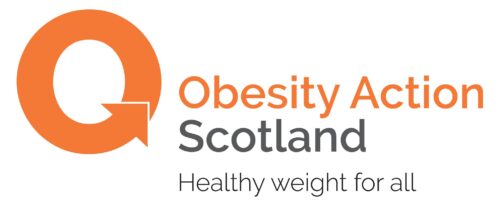
 A new year offers an opportunity to reflect on the year just gone and to also look forward to the opportunities and challenges ahead. 2024 will remain a challenging year for many with ongoing cost of living challenges, the fallout of the Covid-19 pandemic, and the impact of years of austerity-led policies. But the expected general election this year could offer an opportunity to change this, by putting a greater focus on policies that support our sector and improve population health, or will we ultimately just end up with more of the same? For me, this is the challenge that 2024 brings – to ensure real change is delivered.
A new year offers an opportunity to reflect on the year just gone and to also look forward to the opportunities and challenges ahead. 2024 will remain a challenging year for many with ongoing cost of living challenges, the fallout of the Covid-19 pandemic, and the impact of years of austerity-led policies. But the expected general election this year could offer an opportunity to change this, by putting a greater focus on policies that support our sector and improve population health, or will we ultimately just end up with more of the same? For me, this is the challenge that 2024 brings – to ensure real change is delivered.
At the end of last year, I was delighted to be elected to the Board of VHS and I’m looking forward to working with the organisation and fellow Board members over the next 3 years. I currently work as Policy and Evidence Manager at Obesity Action Scotland. Our work focuses on advocating for changes to the food environment to improve population diet and weight and reduce inequalities, through activities in key policy areas of food and drink promotions, advertising, and the out of home sector. In my role, I lead on policy and evidence gathering, including consultations, research and briefings, representing the organisation on various coalitions and alliances, and also at conferences and events.
Having worked in a range of policy roles in various policy areas for the last decade, I have started to reflect on what we need to do to deliver the real change we need to see. My first task as a VHS Board member was to participate in the ‘Big Debate’ panel held at the AGM on 30th November last year. As panel members, we were asked to consider what we felt the burning issues are for health and healthcare. For me, these are two-fold – a need for a shift towards a prevention-led approach, and for a change to the current economic model.

Firstly, prevention. Those of us working in public health policy are well aware of worsening health outcomes across the population, in particular stalling life and healthy life expectancy and growing levels of health inequalities. The current healthcare system is based on a decades old medical model designed to treat rather than prevent ill health. Of course, the NHS is important, but we need to look beyond the NHS if we are to address many of the underlying causes and systemic issues which drive worsening health outcomes and inequality such as poverty, low income, and lack of access to healthy food. I was really struck by what Lord Nigel Crisp said at last year’s VHS conference that “we need to remove our NHS spectacles” if we truly want to improve population health outcomes. Prevention and health creation are at the heart of this. We need to look at addressing the systemic issues and wider determinants of health which sit beyond the healthcare system. To paraphrase Michael Marmot, what’s the point in treating people to send them back to the conditions which made them sick in the first place? I strongly believe our sector has a critical role to play in delivering this.
Looking specially at obesity, prevention is critically important here too. Currently, more than two-thirds of adults and a third of children in Scotland are living with overweight and obesity, and there are clear disparities between the most and least deprived. This matters because obesity is a leading risk factor for many non-communicable diseases including cancer, type 2 diabetes, and cardiovascular conditions, and there are huge costs associated with this that we can’t shy away from. Recently published research has calculated the cost of obesity in Scotland in 2022 to be £5.3 billion, and this includes costs to quality of life, the economy, and NHS. If we maintain the status quo, these statistics will continue to get worse. Re-shifting the focus to prevention and health creation is critical for altering this trajectory.

Secondly, to accompany this, there needs to be a shift in our economic model towards one which prioritises human and planetary health and addresses inequality, away from the current focus on GDP and economic growth at any price. It is welcome that the Scottish Government have committed to delivering a wellbeing economy for Scotland, and are currently consulting on a Wellbeing and Sustainable Development Bill, which will form the part of this, but it remains unclear how a wellbeing economy will be defined. The consultation doesn’t provide a definition although does provide an opportunity for input on how wellbeing should be defined. From my perspective, this provides both an opportunity and a responsibility on us as a sector to ensure that the definition and approach taken to wellbeing, and the wellbeing economy, meets the needs of the communities we represent, and delivers health for all in an economy which actively promotes and improves health.
2024 presents us with an opportunity to deliver real change to improve population health and to take steps to address health inequalities. This will of course be challenging, as many of these issues are deeply entrenched, but if we can shift the narrative towards one focused on prevention and health creation, and take a hard look at our economic model and priorities, real change could be delivered. As a sector, I believe we are already on that road and committed to delivering real change. We now need our politicians and policy makers to take bold and urgent action and travel the road with us.
Jennifer Forsyth is Policy and Evidence Manager at Obesity Action Scotland and a member of the VHS Board.

